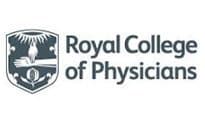Standards for EPRs launched
- 12 July 2013

A new set of standards for the content and structure of electronic patient records has been launched at the Royal College of Physicians.
‘Standards for the clinical structure and content of patient records’ provides a set of generic standards for recording clinical information, allowing it to be easily shared with other parts of the health or social care system
The standards have been developed by healthcare professionals from multi-disciplinary backgrounds, patients, carers and health IT specialists in a programme of work led by the RCP and commissioned by Health and Social Care Information Centre.
Professor Iain Carpenter, associate director of the RCP Health Informatics Unit, said the standard headings represent the requirements of patients and clinical professionals for care records.
“The Department of Health and NHS England set the goal of a ‘paperless’ NHS by 2018. If there is to be any chance of achieving this ambitious challenge, it will have to be based on integrated EPRs holding information recorded at the point of care,” he said.
“These standards are the clinical basis for those technical solutions.”
At the launch event yesterday, Carpenter also announced the formal creation of a community interest company called the Professional Record Standards Body for health and social care.
The group, owned by clinical professional bodies and patient organisations, will provide overall professional governance and assurance of the standards.
Carpenter described yesterday’s publication as “just the beginning”, as the standards need to be extended to other clinical disciplines such as nurses and midwives.
Sir Alex Markham, professor of medicine at the University of Leeds, said at the launch that the new standards provide a platform for the spread of EPRs.
This could bring huge benefits as medicine is “essentially a matter of information”. Standards to allow easier sharing of relevant information about patients will therefore improve patient care and save time for clinicians, he said.
NHS Confederation chief executive Mike Farrar described EPRs as the “way forward for the NHS”.
“If we can get the right system in place, the paybacks will be immediate, both for patients and the staff who care for them. The NHS has done a lot of work to switch to a paperless service with impressive results, but such initiatives are patchy,” he explained.
“What we really need is a programme that joins up the whole system, one that is accessible no matter which NHS service is treating you and one that frees up more clinicians’ time and patients’ time to focus on care.”




